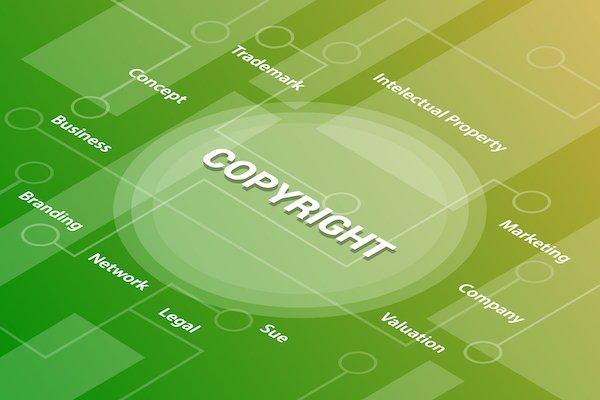Non Infringement Opinions in Patent Cases. Reporting Under the CTA. The Real Takeaway From VIP Products LLC v. Jack Daniel’s.
In this week's post, we discuss strategies that a company can employ to defend itself against claims for willful infringement and exceptional case finding, and the use of non-infringement opinions in patent cases to reduce litigation risk.
Also, information regarding the new Corporate Transparency Act reporting requirements as well as access to a CTA checklist.
Plus, the key takeaways and observations on the Jack Daniel’s and VIP Products trademark dispute case.
Non Infringement Opinions in Patent Cases: Strategic Solutions to a Growing Problem
It is a frequent practice for Non-Practicing Entities (NPEs or “patent trolls”) to send letters to targets they either believe infringe a patent or are willing to pay a nuisance settlement to avoid litigation (e.g., “shakedown” money). This strategy has two benefits to the NPE. First, whoever responds to the letter is added to the “warm” target list and has at least implicitly acknowledged a willingness to engage in conversation with the NPE. Second, it potentially creates evidence that the NPE provided the target with notice of the patent infringement claim. This can be used later to support a finding of willful infringement and possibly an exceptional case, which may lead to up to triple damages, attorney’s fees, and costs.
Read Non Infringement Opinions in Patent Cases: Strategic Solutions to a Growing Problem.
Reporting Under the Corporate Transparency Act is Coming – Are you prepared?
In September 2023, The Financial Crimes and Enforcement Network (FinCen) issued its final rules for compliance with the Corporate Transparency Act (CTA) and these rules are now in effect. In brief, the CTA requires all non-exempt reporting companies to file reports listing their beneficial owners and the persons responsible for the formation of the reporting company (called company applicants).
While the deadline for filing the report with FinCen for reporting companies in existence prior to January 1, 2024 is still some time away -- reporting companies created or registered before January 1, 2024 will have until January 1, 2025 to file their initial reports – it is not too early to begin the process of evaluating whether a reporting company will have to file and gathering the necessary information.
Read Reporting Under the Corporate Transparency Act is Coming – Are you prepared?
The Real Takeaway From VIP Products LLC v. Jack Daniel’s
Much has already been written about the Supreme Court’s holding in the trademark dispute between Jack Daniel’s and VIP Products regarding the “Bad Spaniels” dog toy that VIP began selling back in 2014. Yes, the High Court’s opinion is important and is discussed below, but another important takeaway from VIP Products, LLC v Jack Daniel’s is the fact that it was filed in 2014 and is still going on. The first round of briefing since the Supreme Court remanded the case back to the trial court will not be completed until April 19, 2024—nearly ten years after the case was filed! And that will not be the end. There could still be additional proceedings in the trial court and once that court makes its next “final” ruling, that decision will be appealable.
The Supreme Court’s opinion was decided on a narrow legal issue and they vacated the Ninth Circuit Court of Appeal’s ruling and remanded the case back to the trial court. The legal analysis is interesting but this case is also a cautionary tale about sending out demand letters and filing declaratory judgment suits.
Read The Real Takeaway From VIP Products LLC v. Jack Daniel’s.
For more posts, see the Ideate blog for the latest news and insights into law, business, and culture.
--------
Darin M. Klemchuk is founder of Klemchuk PLLC, a litigation, intellectual property, and business law firm located in Dallas, Texas. He also publishes Thriving Attorney, a blog dedicated to exploring the business of the practice of law, productivity and performance for attorneys, and other topics such as law firm leadership and management, law firm culture, and business development for attorneys. Click to learn more about Darin M. Klemchuk's law practice as an intellectual property lawyer.
Weekly IP Buzz for the Week Ending December 16, 2022
A summary of interesting developments in intellectual property, technology, social media, and Internet law for week ending December 16, 2022. Copyright: a year in review. Copyright term extension.
In this week's post, we see as copyright term extensions for old, famous works begin to expire, it is important for owners to know what other rights they may be able to use to prevent third party unauthorized use and for public domain users to understand the true landscape of available and fair use.
Copyright: A Year in Review
In the coming year, some Mickey Mouse works and other famous copyrighted works will see an end to the copyright term extension of 1998, becoming available for use in the public domain.
Read more here.
For more posts, see our Ideate blog for the latest news and insights into law, business, and culture.
--------
In addition to publishing Thriving Attorney, Darin M. Klemchuk is founder of Klemchuk PLLC, a litigation, intellectual property, and transactional law firm located in Dallas, Texas. Click to read more about Darin Klemchuk's practice as an intellectual property lawyer. For more on the latest developments in IP law, see the blogs Ideate and IP Questions Answered.
Weekly IP Buzz for the Week Ending December 9, 2022
A summary of interesting developments in intellectual property, technology, social media, and Internet law for week ending December 9, 2022. Google iHeartMedia deceptive ads for the Pixel 4 phone leads to $9.4M fine by FCC. "Texas Pete" hot sauce lawsuit.
In this week's post, we see that Google is ordered by the FCC to pay $9.4 million due to misleading advertisements for its Pixel 4 phone.
Also, a California man brought a class action lawsuit against the makers of “Texas Pete” hot sauce claiming the product actually made in North Carolina is deceptive and misleading to consumers. Sales of “Texas Pete” hot sauce spiked after the lawsuit.
FCC Rules Against Google and iHeartMedia for Deceptive Ads Campaigns Involving Pixel 4 Phone
The FCC ordered Google to pay $9.4 million in fines due to deceptive ads with iHeartMedia for the Pixel 4 phone.
Read more here.
North Carolina Company Sued for Allegedly Misleading “Texas Pete” Hot Sauce
Phillip White, a California resident, brought a class action suit in the U.S. District Court for the Central District of California against T. W. Garner Food Co., based in North Carolina and manufacturer of “Texas Pete” hot sauce. The dispute stems from White’s claim that T. W. Garner engaged in deception by misleadingly naming, labeling, and adorning the hot sauce with Texas references.
Find more here.
For more posts, see our Ideate blog for the latest news and insights into law, business, and culture.
--------
In addition to publishing Thriving Attorney, Darin M. Klemchuk is founder of Klemchuk LLP, a litigation, intellectual property, and transactional law firm located in Dallas, Texas. Click to read more about Darin Klemchuk's practice as an intellectual property lawyer. For more on the latest developments in IP law, see the blogs Ideate and IP Questions Answered.
Weekly IP Buzz for the Week Ending December 2, 2022
A summary of interesting developments in intellectual property, technology, social media, and Internet law for week ending December 2, 2022. FinCEN final rules on CTA reporting for small businesses. USPTO trademark response time change.
In this week's post, we see that the FinCEN issued final rules for implementation of the CTA business reporting requirements that will affect most small businesses.
Also, the USPTO trademark response time change can both help applicants get registrations sooner, but also affect trademark filing strategies as well as put pressure on prosecution efforts.
Beneficial Ownership Reporting Now a Reality for Most Small Businesses
The FinCEN issues final rules for implementation of the CTA reporting requirements for businesses.
Read more here.
USPTO Office Action Response Time Shortened
Starting in December, there will be a response time change for USPTO trademark responses to most trademark office actions which will be cut down to 3 months from 6.
Find more here.
For more posts, see our Ideate blog for the latest news and insights into law, business, and culture.
--------
In addition to publishing Thriving Attorney, Darin M. Klemchuk is founder of Klemchuk LLP, a litigation, intellectual property, and transactional law firm located in Dallas, Texas. Click to read more about Darin Klemchuk's practice as an intellectual property lawyer. For more on the latest developments in IP law, see the blogs Ideate and IP Questions Answered.
Weekly IP Buzz for the Week Ending November 18, 2022
A summary of interesting developments in intellectual property, technology, social media, and Internet law for week ending November 18, 2022. Benefits of copyright registration. IKEA trademark enforcement and cease-and-desist letter.
In this week's post, we see that although copyright registration is not necessary for ownership rights, it is beneficial and necessary in the event of infringement, and to need to file suit for damages.
Also, IKEA sends a cease and desist to video game company over alleged trademark infringement.
Why Should You Register Your Copyright?
Copyright registration provides important benefits including the ability to sue for infringement and request statutory damages and recover attorney fees.
Read more here.
IKEA Sends Cease and Desist to Indie Game Developer
Seeking trademark enforcement and protection of its reputation, IKEA sends cease and desist to indie game developer for using similar look and style in video game furniture store.
Find more here.
For more posts, see our Ideate blog for the latest news and insights into law, business, and culture.
--------
In addition to publishing Thriving Attorney, Darin M. Klemchuk is founder of Klemchuk LLP, a litigation, intellectual property, and transactional law firm located in Dallas, Texas. Click to read more about Darin Klemchuk's practice as an intellectual property lawyer. For more on the latest developments in IP law, see the blogs Ideate and IP Questions Answered.
Weekly IP Buzz for the Week Ending November 4, 2022
A summary of interesting developments in intellectual property, technology, social media, and Internet law for week ending November 4, 2022. Work productivity tracking. Internet Archive CDL
In this week's post, we see as the work-from-home trend continues, employers use work productivity tracking software to help monitor and keep businesses running smoothly, but without adequate disclosure, employee privacy concerns arise.
Also, as digital media use continues to increase, Internet Archive faces copyright infringement claims for its use of controlled digital lending of digital books.
A Worrying Surveillance Trend for Remote Workers
With the remote work trend continuing, employers seek work productivity tracking of employees.
Read more here.
Digital Library Faces Copyright Infringement Lawsuit
Internet Archive uses Controlled Digital Lending (CDL) technology to lend out digital books and has been sued by publishing companies claiming copyright infringement.
Find more here.
For more posts, see our Ideate blog for the latest news and insights into law, business, and culture.
--------
In addition to publishing Thriving Attorney, Darin M. Klemchuk is founder of Klemchuk LLP, a litigation, intellectual property, and transactional law firm located in Dallas, Texas. Click to read more about Darin Klemchuk's practice as an intellectual property lawyer. For more on the latest developments in IP law, see the blogs Ideate and IP Questions Answered.
Weekly IP Buzz for the Week Ending October 21, 2022
A summary of interesting developments in intellectual property, technology, social media, and Internet law for week ending October 21, 2022. Art style copyright infringement. NFT insider trading lawsuits.
In this week's post, we see that an artist has filed multiple intellectual property claims over alleged infringement of her photo collage style.
Also, the Department of Justice filed a lawsuit against a former product manager for insider trader of NFTs for the first time this year. This lawsuit was later followed by multiple charges against others for similar charges.
A Million Dollars Photo Collage
Though some say imitation is the sincerest form of flattery, artist Deborah Roberts is suing another artist claiming copyright infringement for using a similar art style.
Read more here.
Lawsuits Popping Up with Claims of Insider Trading of NFTs
The DOJ is filing lawsuits against insider trading with use of NFTs and other digital assets. Even though the sale of NFTs is not regulated by the law, the lawsuit is also based on charges of wire fraud and money laundering. Later, federal prosecutors continued to press charges against others for similar schemes.
Find more here.
For more posts, see our Ideate blog for the latest news and insights into law, business, and culture.
--------
In addition to publishing Thriving Attorney, Darin M. Klemchuk is founder of Klemchuk LLP, a litigation, intellectual property, and transactional law firm located in Dallas, Texas. Click to read more about Darin Klemchuk's practice as an intellectual property lawyer. For more on the latest developments in IP law, see the blogs Ideate and IP Questions Answered.
Weekly IP Buzz for the Week Ending October 7, 2022
A summary of interesting developments in intellectual property, technology, social media, and Internet law for week ending October 7, 2022. Amazon brand protection. DMCA Section 1201.
In this week's post, we see that Amazon issues its brand protection report for 2022 indicating success in efforts to curb counterfeit issues and bad actors on the online selling platform.
Also, the Supreme Court is hearing arguments on the Digital Millennium Copyright Act and digital locks.
Amazon's Efforts to Combat Counterfeiting and Fraud
Amazon recently released its Brand Protection Report for 2022, reporting on the progress of its key initiatives to combat counterfeiting in 2021 and its plan for continued success in those areas.
Continuing with its key goals from the previous year, Amazon outlined its progress and plans forward in four key areas: (1) Robust proactive controls on product authenticity; (2) Brand protection tools; (3) Holding counterfeiters accountable; and (4) Protecting and educating consumers. Under this structure, Amazon outlines its intent to be “earth’s most customer-centric company” where consumers “can find and discovery the widest possible selection of authentic goods.”
Read more here.
Supreme Court Hears Oral Arguments Regarding Anti-Hacking
Last month, the Supreme Court heard oral arguments regarding digital locks under the Digital Millennium Copyright Act. The issue has been a sore subject for critics of the law and finally reached the Supreme Court for final review.
The Digital Millennium Copyright Act (DMCA) has long prohibited circumvention of digital protective measures in order to afford copyright protection to qualifying works. Such protection encompasses everything from simple password protection to more complex digital encryption. In 2016, computer experts, Matthew Green and Andrew Huang, sued the federal government over Section 1201 of the Digital Millennium Copyright Act.
Represented by the Electronic Frontier Foundation, Green and Huang argued that computer code is speech, and as such, Section 1201 violates the U.S. Constitution because it illegally restricts free speech.
Find the full article here.
For more posts, see our Ideate blog for the latest news and insights into law, business, and culture.
--------
In addition to publishing Thriving Attorney, Darin M. Klemchuk is founder of Klemchuk LLP, a litigation, intellectual property, and transactional law firm located in Dallas, Texas. Click to read more about Darin Klemchuk's practice as an intellectual property lawyer. For more on the latest developments in IP law, see the blogs Ideate and IP Questions Answered.
Weekly IP Buzz for the Week Ending September 23, 2022
A summary of interesting developments in intellectual property, technology, social media, and Internet law for week ending September 23, 2022. AI-generated art. US and EU agree to stringent Trans-Atlantic Data Privacy (TADP) Framework.
In this week's post, we see that artwork generated by artificial intelligence won first place at a state fair, which raises questions about copyrights and related compensation.
Also, the United States and the European Union have agreed to the new Trans-Atlantic Data Privacy Framework, replacing the Privacy Shield Framework, which was invalidated by an EU court decision in 2020.
Should Humans Receive Compensation for AI-Generated Art?
Headlines were made recently when artwork created by artificial intelligence (“AI”) won a prize in a state fair. This artwork was created by a text-to-image AI generator and submitted to the Digital Arts/Digitally-Manipulated Photography category of the Colorado State Fair. While many argue whether this spells the end of art, it also raises interesting questions about copyright law and compensation for the humans responsible for the work’s creation.
Recently, text-to-image AI generators have become more popular and accessible to the mainstream population. These generators are not new, however, as AI has been used to create art for decades. To produce such art, AI creates these paintings and drawings according to a set of rules predefined by programmers. The AI then uses these rules to learn a certain aesthetic by analyzing images, fed to it by the programmer, over and over again. As the AI produces art in this aesthetic, the program and algorithms can be, and usually are, tweaked multiple times until a desired result is achieved.
But as such art becomes more popular, questions arise regarding copyrights and compensation for the humans partially responsible for the AI-generated art. Earlier this year, the U.S. Copyright Office affirmed a 2019 decision that AI could not claim authorship for a work. In the case at hand, Stephen Thaler created the algorithm that the AI followed and argued that his AI had created the art as a work-for-hire for him. Ultimately, the U.S. Copyright Office disagreed with his arguments.
Read more here.
The US and EU Agree to Stringent Trans-Atlantic Data Privacy (TADP) Framework
Earlier this year, the United States and the European Union (“EU”) announced the new Trans-Atlantic Data Privacy (“TADP”) Framework to address data privacy and protection of EU citizens’ data. This replaces previous agreements that governed the transfer of such data, specifically the Safe Harbor Framework and the Privacy Shield Framework, which were invalidated by EU court decisions in 2015 and 2020 respectively.
Such agreements governing the transfer of data between the EU and United States work in conjunction with the EU General Data Protection Regulation (“GDPR”), which requires that personal data flowing between the EU and other countries must be protected in ways equivalent to EU privacy and protection standards. As the United States and the EU have significantly different protections and standards when it comes to data privacy, TADP is expected to help significantly reduce the cost of compliance for U.S. companies. Currently, the transfer of such data between the EU and the United States affects over 7.1 trillion U.S. dollars and over 5000 companies that self-identity and certify that they meet the qualifications to transfer such data.
Find the full article here.
For more posts, see our Ideate blog for the latest news and insights into law, business, and culture.
--------
In addition to publishing Thriving Attorney, Darin M. Klemchuk is founder of Klemchuk LLP, a litigation, intellectual property, and transactional law firm located in Dallas, Texas. Click to read more about Darin Klemchuk's practice as an intellectual property lawyer. For more on the latest developments in IP law, see the blogs Ideate and IP Questions Answered.
Weekly IP Buzz for the Week Ending May 6, 2022
A summary of interesting developments in intellectual property, technology, social media, and Internet law for week ending May 6, 2022. Hermès sues over MetaBirkins. McDonald’s in the Metaverse.
In this week's post, we see that, although Rothschild maintains the use of MetaBirkins is a form of artistic expression and first amendment protected right, Hermès claims trademark infringement.
Also, trademark brand owners seek registrations for use of marks in the virtual field, likely to best combat third-party misuse of their marks in virtual spaces.
U.S. Virtual Reality Clashes with Real World: Hermès Sues Against Use of MetaBirkins
Digital artist, Mason Rothschild, continues to create controversy with his unrelenting use of MetaBirkins NFTs despite the claims of Hermès for trademark infringement and dilution of its BIRKIN® trademark for handbags.
The increasingly popular use of NFT virtual goods akin to real world products has led to a wave of intellectual property litigation including claims of trademark infringement. While artists such as Rothschild claim the use of “MetaBirkins” as a name to sell NFTs containing Birkin® look-alike bags is merely an artistic expression, owners of name brands are fighting back against such use claiming trademark infringement and dilution of their brands.
Hermès is a leading fashion icon known for its famous BIRKIN® luxury brand bags. It is only natural that it would police against any third-party use of similar names for the sale of similar product and may be able to stop any such openly public use.
Read more here.
If You Think McDonald’s Fries Are Out of This World, Wait for McDonald’s in the Metaverse
With the rapid growth of assets in virtual space, many well-known brands are seeking to offer goods and services within the virtual reality field. Following numerous other brands, McDonald’s has also thrown the hat in the ring to join in Metaverse offerings to consumers.
Although most people go to McDonald’s for a fast meal, to give kids some quick food and fun, or for the fries . . . consumers may soon be able to enjoy McDonald’s in the Metaverse with an array of virtual goods and services.
Find the full article here.
Click to read the previous Weekly IP Buzz on Thriving Attorney: Attorney-client privilege.
For more posts, see our Ideate blog for the latest news and insights into law, business, and culture.
--------
In addition to publishing Thriving Attorney, Darin M. Klemchuk is founder of Klemchuk LLP, a litigation, intellectual property, and transactional law firm located in Dallas, Texas. Click to read more about Darin Klemchuk's practice as an intellectual property lawyer. For more on the latest developments in IP law, see the blogs Ideate and IP Questions Answered.
Weekly IP Buzz for the Week Ending April 29, 2022
A summary of interesting developments in intellectual property, technology, social media, and Internet law for week ending April 29, 2022. Attorney-client privilege misuse.
In this week's post, we see that the U.S. Department of Justice claims misuse of attorney-client privilege by Google in drafting internal communications in a manner that shields them from production.
U.S. Department of Justice Claims Google Misused Attorney-Client Privilege
Since 2020, Google has been entangled in a multi-state (Texas included) antitrust lawsuit over its online advertising practices. At the heart of the lawsuit is Google’s alleged monopoly power over setting its advertising prices. Because Google controls a whopping 92% of search engine market share, it has had considerable control of pricing when it comes to online advertising. But the U.S. Department of Justice (“DOJ”)’s most recent issue related to the lawsuit with Google is over Google’s alleged misuse of attorney-client privilege.
While preparing its case against Google, the DOJ noticed that Google had a peculiar in-house procedure called “Communicate with Care.” The DOJ claims that, since 2015, Google has required its employees to mark any written documentation regarding its ad revenue-sharing and mobile application distribution agreements as privileged. Typically, communication between a client and their legal counsel is considered to be privileged but is usually produced in anticipation of litigation only. As such, the amount of communication and documentation marked under attorney-client privilege is small percentage of the documents produced by a company in its normal course of business.
Read more here.
Click to read the previous Weekly IP Buzz on Thriving Attorney: Joint defense agreements in patent cases. Corporate transparency and start-ups. WDTX new standing orders for patent cases.
For more posts, see our Ideate blog for the latest news and insights into law, business, and culture.
--------
In addition to publishing Thriving Attorney, Darin M. Klemchuk is founder of Klemchuk LLP, a litigation, intellectual property, and transactional law firm located in Dallas, Texas. Click to read more about Darin Klemchuk's practice as an intellectual property lawyer. For more on the latest developments in IP law, see the blogs Ideate and IP Questions Answered.
Weekly IP Buzz for the Week Ending March 18, 2022
A summary of interesting developments in intellectual property, technology, social media, and Internet law for week ending March 18, 2022. A parody article on copyright troll step-by-step guide. Private equity companies & Corporate Transparency Act (CTA).
In this week's post, we have a parody article that asks the question "Have you ever wanted to make thousands of dollars from taking hobby photographs?" and gives a step-by-step guide on how to be a copyright troll.
Also, the Corporate Transparency Act (CTA) and the proposed rules by the federal Financial Crimes Enforcement Network (FinCen) pose significant risks to private equity companies, their founders, and potentially associated professionals. The CTA was the culmination of a multi-year effort by Congress, the Department of Treasury (Treasury), other national security agencies, law enforcement, and other stakeholders to bolster the US corporate transparency framework.
Copyright Troll Step-By-Step Guide: How to Make Thousands as a Hobbyist Photographer
This article is a parody of copyright trolls who send demand letters and sue for copyright infringement based on third parties’ use of photographs. A future article will provide steps to combat these kinds of copyright infringement troll cases to minimize liability and defense costs.
Remember that the key to this is converting a hobby (digital photography) into an income stream paid by yet unknown third parties that are going to use your photograph in the future. With this goal in mind, it is generally best to take photographs of generic scenes of common interest. Examples include famous building and landmarks, highways and other roads, city images, etc. You will want to select something that is generic enough to appear in an Internet search for images and that third parties would want to include in their websites without realizing they are potentially violating your copyrights. That’s how you can monetize the images.
Read the full article here.
What Private Equity Needs to Know About the Corporate Transparency Act
While U.S. private equity and venture capital investments in U.S. based companies below Hart Scott Rodino thresholds typically do not require any governmental filings and the amount of investment and information about the fund and its individual owners is typically not required to be filed. Moreover, information on the control structure and individual ownership of these funds also is generally not required to be filed by the fund’s portfolio companies.
This is the case no longer. The enactment of the Corporate Transparency Act (CTA) and the proposed rules by the U.S. Department of Treasury’s federal Financial Crimes Enforcement Network (FinCen) will now require private equity and venture capital firms to consider whether they or their portfolio companies are required to file reports with FinCen under the CTA.
Find the full article here.
Click to read the previous Weekly IP Buzz on Thriving Attorney: Joint defense agreements in patent cases. Corporate transparency and start-ups. WDTX new standing orders for patent cases.
For more posts, see our Ideate blog for the latest news and insights into law, business, and culture.
--------
In addition to publishing Thriving Attorney, Darin M. Klemchuk is founder of Klemchuk LLP, a litigation, intellectual property, and transactional law firm located in Dallas, Texas. Click to read more about Darin Klemchuk's practice as an intellectual property lawyer. For more on the latest developments in IP law, see the blogs Ideate and IP Questions Answered.
Weekly IP Buzz for the Week Ending March 11, 2022
A summary of interesting developments in intellectual property, technology, social media, and Internet law for week ending March 11, 2022. Joint defense agreements in patent cases. Corporate transparency and start-ups. WDTX new standing orders for patent cases.
In this week's post, we look at questions to ask and considerations to make before deciding to hire an independent law firm or join a defense group, when being sued for patent infringement by a troll.
Also, the Corporate Transparency Act (CTA) and the proposed rules by the federal Financial Crimes Enforcement Network (FinCen) pose significant risks to start-ups, their founders, and potentially associated professionals. The CTA was the culmination of a multi-year effort by Congress, the Department of Treasury (Treasury), other national security agencies, law enforcement, and other stakeholders to bolster the US corporate transparency framework.
And, the Western District of Texas (WDTX) has issued new standing orders for patent cases.
The Problem of High Costs in Defending Patent Infringement Cases
One common tool used by patent trolls and NPEs (Non-Practicing Entities) to extract higher settlements is the exorbitant cost of defending patent infringement cases versus an early settlement offer. The average fee through trial for even medium-sized cases (measured by damages sought) can exceed millions of dollars. These cases also frequently involve expensive damages and technical experts, mock trials, and jury consultants. Defendants face additional risks of the case being deemed “exceptional” under 35 U.S.C. § 287 entitling the plaintiff to recover its attorney’s fees and costs. Or worse, a finding of willful infringement resulting into up to 3 times the damage award.
Large companies face a potentially larger problem than a single patent troll case: like the Viking raiders a millennium ago, once gold is found, the trolls will come back again and again having learned that a company is an easy target for a high ROI settlement. We have seen this firsthand with clients and have even seen the same basic form settlement agreement used over different campaigns with different targets by different plaintiff’s counsel. Faced with high defense costs as well as risk of repeat claims by other trolls in the future, what options do companies have to mitigate risk and loss?
Read the full article here.
What Start-Ups Need to Know About the Corporate Transparency Act
While start-ups have a lot to do in their first year, one thing that they traditionally have not had to mess with was disclosure of information related to their principals and underlying individual beneficial owners, nor keep up with this information as they accept additional investment. This has allowed start-ups to be formed quickly and start building value with minimal information disclosure requirements, especially around their senior management, ownership and control structures. That is now set to change with the enactment of the Corporate Transparency Act (CTA) and the proposed rules by the U.S. Department of Treasury’s federal Financial Crimes Enforcement Network (FinCen). The CTA was the culmination of a multi-year effort by Congress, the Department of Treasury (Treasury), other national security agencies, law enforcement, and other stakeholders to bolster the US corporate transparency framework. These stakeholders believe that the current lack of a corporate transparency framework allows illegal activity to be hidden behind corporate and other entities.
Find the article here.
Amended Standing Orders for Judge Albright (WDTX Local Patent Rules)
On March 7, 2022, Judge Albright of the Western District of Texas (WDTX) issued five updated standing orders governing cases pending before Judge Albright.
Click to read the previous Weekly IP Buzz on Thriving Attorney: SDTX soliciting comments on local patent rule changes by March 28, 2022
For more posts, see our Ideate blog for the latest news and insights into law, business, and culture.
--------
In addition to publishing Thriving Attorney, Darin M. Klemchuk is founder of Klemchuk LLP, a litigation, intellectual property, and transactional law firm located in Dallas, Texas. Click to read more about Darin Klemchuk's practice as an intellectual property lawyer. For more on the latest developments in IP law, see the blogs Ideate and IP Questions Answered.
Weekly IP Buzz for the Week Ending March 4, 2022
A summary of interesting developments in intellectual property, technology, social media, and Internet law for week ending March 4, 2022. SDTX soliciting comments on local patent rule changes by March 28, 2022.
In this week's post, we draw attention to the United States District Court for the Southern District of Texas and their request for public comment on proposed changes to the Local Rules of Practice for Patent Cases.
SDTX (Southern District of Texas)
From a notice recently published by the SDTX:
The United States District Court for the Southern District of Texas solicits public comment on proposed changes to the Local Rules of Practice for Patent Cases. The proposed amendments and suggested order templates simplify management of patent cases and update the court's 2005 version of the local rules and procedures to conform with more recent amendments to patent laws and rules of civil procedure.
The deadline for comments is Monday, March 28, 2022.
Read more here, includes the link to the Court's web site.
Click to read the previous Weekly IP Buzz on Thriving Attorney: “Non-Fungible Tokens and Copyrights: Is There Any IP in NFT Ownership?” and “Taylor Swift Fights Copyright Infringement Claims Regarding “Shake it Off”
For more posts, see our Ideate blog for the latest news and insights into law, business, and culture.
--------
In addition to publishing Thriving Attorney, Darin M. Klemchuk is founder of Klemchuk LLP, a litigation, intellectual property, and transactional law firm located in Dallas, Texas. Click to read more about Darin Klemchuk's practice as an intellectual property lawyer. For more on the latest developments in IP law, see the blogs Ideate and IP Questions Answered.
Weekly IP Buzz for the Week Ending February 25, 2022
A summary of interesting developments in intellectual property, technology, social media, and Internet law for week ending February 25, 2022. Non-fungible tokens and copyrights. Taylor Swift fights copyright infringement claims.
In this week's post, we see that the popularity of non-fungible tokens has finally caught up with it, ushering in a new era of copyright litigation and accompanying scams.
Also, since 2017, music star Taylor Swift has been involved in a protracted legal dispute over her 2014 song “Shake it Off, “ which came off her wildly popular album, 1984.
Non-Fungible Tokens and Copyrights: Is There Any IP in NFT Ownership?
Non-fungible tokens have become all the rage since its explosion in 2020. But since its emergence, non-fungible tokens have caused considerable confusion regarding ownership stake in related intellectual property because of the public’s misunderstanding of the rights conveyed with such purchase of non-fungible tokens. This confusion has led to a wave of intellectual property litigation such as claims of copyright infringement.
Earlier this year in January 2022, a decentralized autonomous organization, known as Spice DAO, paid over $3 million for an unpublished copy of the unpublished film, Dune. The purchase, which occurred at a Christie’s auction, stunned the world when the purchase price went for almost ninety times what experts had estimated for it to go.
Almost immediately after the purchase, Spice DAO publicly announced that it would make its own animated series based on the freshly purchased manuscript as well as allow derivative projects to be created by third parties. The tweet was met with almost universal ridicule as it was clear that Spice DAO did not understand how intellectual property ownership rights were legally conveyed.
Read the full article here.
Taylor Swift Fights Copyright Infringement Claims Regarding “Shake it Off”
Since 2017, music superstar Taylor Swift has been involved in a protracted legal dispute regarding her 2014 hit, “Shake it Off.” The lawsuit was originally filed by song lyricists Nathan Butler and Sean Hall over alleged copyright infringement of the lyrics of the song, “Playas Gon’ Play,” which was performed by female group 3LW.
Read more here.
Click to read the previous Weekly IP Buzz on Thriving Attorney: 2021 Year in Review IP Law and International Law
For more posts, see our Ideate blog for the latest news and insights into law, business, and culture.
--------
In addition to publishing Thriving Attorney, Darin M. Klemchuk is founder of Klemchuk LLP, a litigation, intellectual property, and transactional law firm located in Dallas, Texas. Click to read more about Darin Klemchuk's practice as an intellectual property lawyer. For more on the latest developments in IP law, see the blogs Ideate and IP Questions Answered.
Weekly IP Buzz for the Week Ending February 18, 2022
A summary of interesting developments in intellectual property, technology, social media, and Internet law for week ending February 18, 2022. A 2021 Year in Review for Intellectual Property Law and International Law.
In this week's post, we have a review of last year’s changes in IP law, which show trends in need for greater protection, ways for facilitating protection, monitoring and enforcement in social media, and an increase in the need for protection in Asian markets.
2021 IP Law Year in Review
Changes in IP law across the globe appear to reflect the continued evolution of technology and the need for better protection and enforcement of intellectual property rights. A review of the last year’s changes in IP show continued efforts to facilitate protection, new legal interpretations and remedies, the appearance of AI in new places, continued COVID-related issues, and an increase in IP protection filings in Asia.
Read the full article here.
Click to read the previous Weekly IP Buzz on Thriving Attorney: The Metaverse and Investing in Virtual Land.
For more posts, see our Ideate blog for the latest news and insights into law, business, and culture.
--------
In addition to publishing Thriving Attorney, Darin M. Klemchuk is founder of Klemchuk LLP, a litigation, intellectual property, and transactional law firm located in Dallas, Texas. Click to read more about Darin Klemchuk's practice as an intellectual property lawyer. For more on the latest developments in IP law, see the blogs Ideate and IP Questions Answered.
Weekly IP Buzz for the Week Ending February 11, 2022
A summary of interesting developments in intellectual property, technology, social media, and Internet law for week ending February 11, 2022. The Metaverse is the next big thing.
In this week's post, we see that the Metaverse is definitely the next big thing in 2022, and as such, celebrities, famous companies, and tech insiders are all hustling to buy up parcels of it.
The Metaverse and Investing in Virtual Land
Ever since Facebook announced its pivot to virtual reality, plots in the Metaverse have grown by as much as 500% in just the past few months. And it’s not just technology buffs or industry insiders that are finding their way into the Metaverse, but it’s also celebrities, giant retailers like Wal-Mart, and tech icons like Microsoft, too. And for those that have not heard about it yet? What is it?
Vaguely, the Metaverse is considered to be the “next big thing.” If you don’t remember, the last “big thing” was the Internet of Things, which boasted and touted the interconnectivity of all things. In 2022 now, it's the Metaverse, which promotes interconnectivity, too, but in a whole different realm.
Read the full article here.
For more posts, see our Ideate blog for the latest news and insights into law, business, and culture.
--------
In addition to publishing Thriving Attorney, Darin M. Klemchuk is founder of Klemchuk LLP, a litigation, intellectual property, and transactional law firm located in Dallas, Texas. Click to read more about Darin Klemchuk's practice as an intellectual property lawyer. For more on the latest developments in IP law, see the blogs Ideate and IP Questions Answered.
Weekly IP Buzz for the Week Ending January 14, 2022
A summary of interesting developments in intellectual property, technology, social media, and Internet law for week ending January 14, 2022. Google Street View class action settlement.
In this week's post, we see that the 9th Circuit Court of Appeals decided that Google’s class action settlement terms were sufficient despite not paying class action members directly.
Google's Street View Class Action Settlement Pays Advocacy Groups Not Class Members
The 9th Circuit Court of Appeals ruled against privacy advocacy groups recently when it found Google’s settlement agreement terms regarding a class action over Street View was sufficient.
The decision came after a long-disputed fight between Google and privacy advocates regarding Google’s agreement to pay $13 million to the advocacy groups instead of to the class action members directly. The 9th Circuit Court of Appeals, the same Circuit Court of Appeals that had originally denied Google’s initial attempts to get out of the class action suits in 2013, ultimately found for Google in 2021.
The dispute arose when several different groups of class action plaintiffs filed actions against Google over its ubiquitous Street View feature of its Google Maps. Since 2010, the legal wrangling has raged on because privacy advocates argued that Google was collecting sensitive data illegally when it shot its famous panoramic photographs of streets because, while doing so, Google has also been collecting personal information of private citizens via access of private Wi-Fi networks.
Read the full article here.
Click to read the previous Weekly IP Buzz on Thriving Attorney.
For more posts, see our Ideate blog for the latest news and insights into law, business, and culture.
--------
In addition to publishing Thriving Attorney, Darin M. Klemchuk is founder of Klemchuk LLP, a litigation, intellectual property, and transactional law firm located in Dallas, Texas. Click to read more about Darin Klemchuk's practice as an intellectual property lawyer. For more on the latest developments in IP law, see the blogs Ideate and IP Questions Answered.
Weekly IP Buzz for the Week Ending January 7, 2022
A summary of interesting developments in intellectual property, technology, social media, and Internet law for week ending January 7, 2022. FTC determines OpenX violates COPPA privacy laws. Artificial intelligence (AI), patent applications, and inventors.
In this week's post, we see that popular advertising company, OpenX Technologies, Inc., was found guilty of violating federal privacy laws including COPPA, which resulted in being fined $2 million.
Plus, the listing of AI as inventor for patents is forcing different countries to review and decide whether AI can indeed be considered an inventor.
FTC Fines OpenX Technologies $2 Million for Violation of Privacy Laws
After a lengthy investigation, the Federal Trade Commission (FTC) found OpenX Technologies, Inc. (“OpenX”) to be guilty of multiple violations of federal privacy laws, most notably the Children’s Online Privacy Protection Act (COPPA), which resulted in fines of approximately $2 million dollars.
Read the full article here.
Can AI Invent? Patent Applications List Artificial Intelligence as an Inventor
As artificial intelligence continues to grow and develop, one question to ask is how long before an artificial intelligence is an inventor on a patent? Currently, it appears the answer depends on where you live.
Dr. Stephen Thaler has filed two different patent applications, “Food Container” and “Devices and Methods for Attracting Enhanced Attention”, a light emitting device, naming and Artificial Intelligence known as DABUS (Device for the Autonomous Bootstrapping of Unified Sentience) as the inventor. Dr. Thaler filed these two applications in the U.S., the UK, South Africa, the EU, and Australia.
Currently, South Africa is the only country that has granted DABUS, and Dr. Thaler, a patent on the applications. The United States, United Kingdom, European Union, and Germany have all rejected the two applications. In the various countries, the term “inventor” is defined in relevant statutes as a human, therefore excluding applications attributed to an artificial intelligence.
Find the full article here.
Click to read the previous Weekly IP Buzz on Thriving Attorney.
For more posts, see our Ideate blog for the latest news and insights into law, business, and culture.
--------
In addition to publishing Thriving Attorney, Darin M. Klemchuk is founder of Klemchuk LLP, a litigation, intellectual property, and transactional law firm located in Dallas, Texas. Click to read more about Darin Klemchuk's practice as an intellectual property lawyer. For more on the latest developments in IP law, see the blogs Ideate and IP Questions Answered.
Weekly IP Buzz for the Week Ending December 17, 2021
A summary of interesting developments in intellectual property, technology, social media, and Internet law for week ending December 17, 2021. McDonald's ice cream machine and trade secret litigation. Tips for creating & funding an eCommerce business.
In this week's post, we see that Kytch’s trade secret litigation case against Taylor, famous for producing McDonald’s ice cream machines, gains steam in discovery phase.
Plus, eCommerce businesses can take various business entity forms and there are different funding options, each with its own pros and cons.
Trade Secret Litigation Involving Ice Cream Machine Diagnostic Device
The manufacturer of McDonald’s ice cream machines is Taylor Company, and they have been sued by small startup, Kytch. Kytch became famous for inventing a device that hacked the ice cream machines Taylor produces for McDonald’s in order to diagnose them whenever the machines returned errors, as the ice cream machines are notorious for being down and in need of maintenance or servicing more often than not.
Last month, the trade secret lawsuit proceeded to the discovery stage of litigation, and as a result, Taylor was required to produce internal communications that have contradicted its previous claims of defense while simultaneously seeming to paint McDonald’s in a less than savory light.
Read more here.
Tips for Creating and Funding an eCommerce Business
(This is Part 8 of a series covering core legal issues for eCommerce and Internet-based businesses.)
Although many aspects of operating an eCommerce business are very different from a traditional business, at its heart, an eCommerce business is still a business. As such, eCommerce business owners must address many of the same legal and operational issues faced by more traditional businesses. This includes choosing an appropriate type of business form, and ensuring they have the necessary capital to get the business up and running.
This article discusses some of entity choices available to eCommerce businesses, as well as common means of raising capital.
Find the full article here.
Click to read the previous Weekly IP Buzz on Thriving Attorney.
For more posts, see our Ideate blog for the latest news and insights into law, business, and culture.
--------
In addition to publishing Thriving Attorney, Darin M. Klemchuk is founder of Klemchuk LLP, a litigation, intellectual property, and transactional law firm located in Dallas, Texas. Click to read more about Darin Klemchuk's practice as an intellectual property lawyer. For more on the latest developments in IP law, see the blogs Ideate and IP Questions Answered.





































